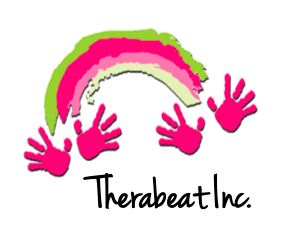Did you know that humans are first exposed to music while they are still in the womb? It's fascinating to think that even before we are born, we are already experiencing the rhythms and melodies that will become such an important part of our lives. Babies are exposed to rhythm from the mother’s heartbeat and footsteps. In the second trimester, babies will begin to hear melodies. We are exposed to music from the very beginning, and it has proven to have incredibly beneficial side effects that stimulate portions of our brain, which is so important for little ones who are rapidly developing and soaking in their environment.
Music therapy can be an excellent tool in areas such as parent-infant bonding, physical development, emotional development, and intellectual development. Therapeutic functions of music including rhythm, tempo, melody, dynamics, pitch, timbre, lyricism, etc. can each be used to promote growth for babies whose minds are rapidly developing and soaking up knowledge. For example, using rhythm and tempo to stimulate the cerebellum can promote movements such as foot tapping, clapping, or patting. Using different keys in songs can promote emotional awareness by using major versus minor keys to associate certain sounds with certain moods through the amygdala. Playing instruments can promote motor skills such as bilateral coordination or cross-body motions. Lyricism is an excellent tool for working on memorization, receptive language, speaking, or even dual language learning through the auditory cortex.
Music therapy is also beneficial for infants in the NICU or parent bonding in hospitals. According to a study completed in 2020 by Palazzi, et al, music therapy has been a beneficial tool in regulating preterm babies’ physiological responses as well as maternal mental health while their child remains in the NICU. The researchers sought out 33 mothers with infants each in the NICU for this particular study. Each of the mothers completed a survey prior to receiving music therapy services, called the State-Trait Anxiety Inventory as well as a postnatal depression scale.
The mother and child pairings would go on to participate in six music therapy sessions completed in the NICU. The music therapists conducting the study made sure to use soft sounds with rhythms matching maternal heart rates to promote comfort within sessions. Following the six sessions within the study, mothers filled out their assessment forms once again. The end of the study resulted in lower anxiety/depression levels for mothers, as well as musical techniques to work with their child on. There was a significant increase in infant weight gain and a slight reduction in how many days the infant spent in the NICU.
Music used to educate and grow babies can be so beneficial for parental mental health as well. Music is used often to develop and grow young children’s brains. When infants listen to music parts of their brain are stimulated to have natural responses that are necessary for growth. Infancy is such a magical and fast-paced growing period. Music can be a tool to guide parents and infants through these changes.
-Mallory McDonald, Music Therapy Intern
References
Baby Music: The soundtrack to your child’s development. UNICEF Parenting. (n.d.). https://www.unicef.org/parenting/child-development/baby-music-soundtrack-to-development
Palazzi, A., Meschini, R., & Piccinini, C. A. (2021). NICU music therapy effects on maternal mental health and preterm infant’s emotional arousal. Infant Mental Health Journal, 42(5), 672–689. https://doi.org/10.1002/imhj.21938
Stern, M. J. (2014, August 13). Why are we so nostalgic for music we loved as teenagers?. Slate Magazine. https://slate.com/technology/2014/08/musical-nostalgia-the-psychology-and-neuroscience-for-song-preference-and-the-reminiscence-bump.html

